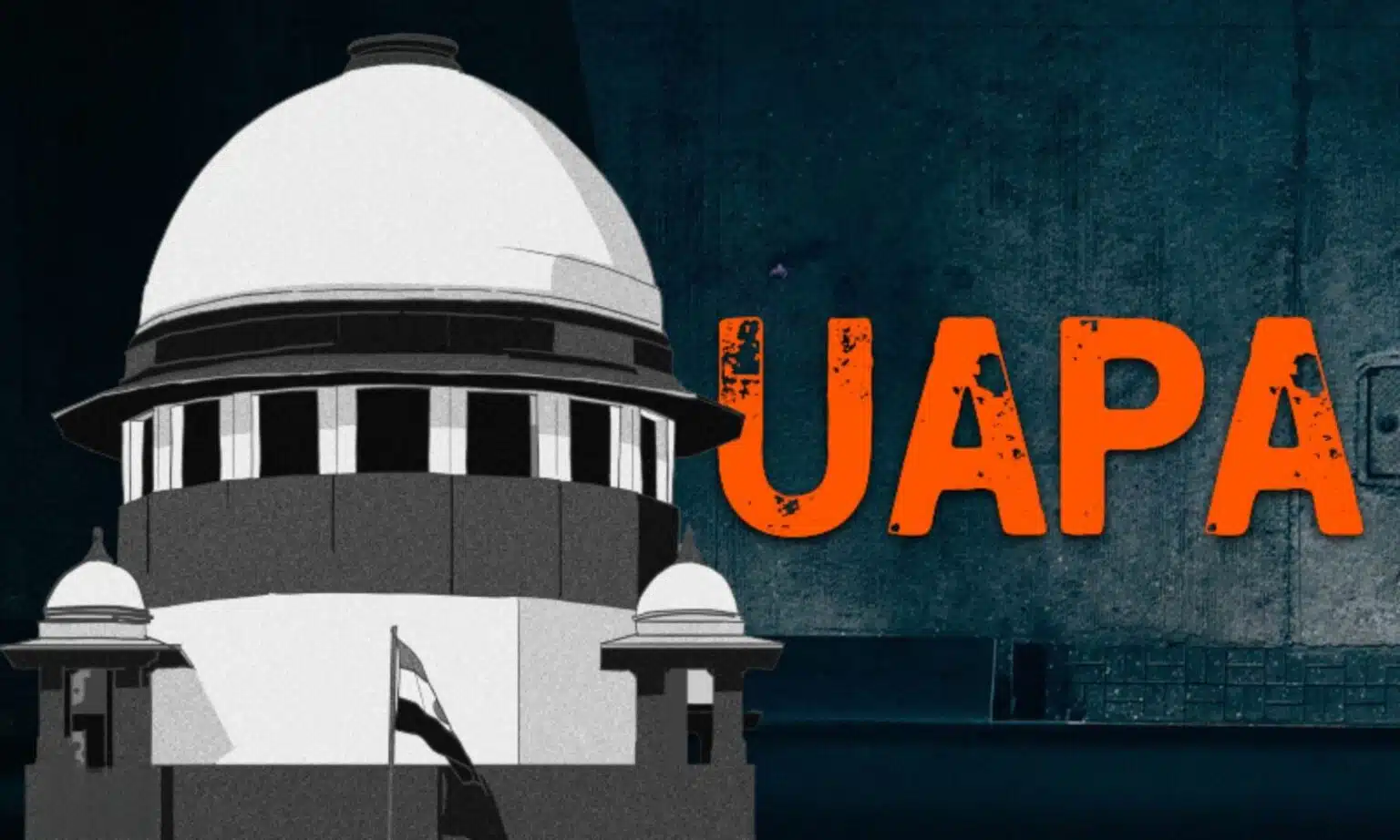The Supreme Court of India has upheld the Unlawful Activities (Prevention) Act’s provision criminalizing membership of an unlawful organization, stating that it is not vague or unreasonable. The court also affirmed that the primary objective of the UAPA is to counter activities directed against the integrity and sovereignty of India.

SC Upholds Provision Criminalizing Membership Of Unlawful Organizations
The Supreme Court of India has upheld Section 10(a) (i) of the Unlawful Activities (Prevention) Act 1967, which criminalizes membership of an unlawful organization. The court said that the provision is not vague or unreasonable and rejected the argument that the provision created a chilling effect on the right to freedom of speech and freedom of association.
By doing this the Court has reversed its previous judgments in Arup Bhuyan vs State of Assam, Indra Das vs State of Assam, and State of Kerala vs Raneef from 2011. These judgments stated that simply being a member of a banned association is not enough to be considered a crime under the Unlawful Activities (Prevention) Act 1967 or the Terrorism and Disruptive Activities (Prevention) Act, unless there is some evident violent behavior. The Court has now overturned these judgments.
The UAPA was first enacted in 1967, and its primary objective is to provide for the more effective prevention of certain unlawful activities of individuals and associations and dealing with terrorist activities and matters connected therewith. However, the act has been criticized for being misused to stifle dissent.

During the hearing, Senior Advocate Sanjay Parikh, who represented the People’s Union for Democratic Rights, argued against Section 10(a)(i), stating that the term “membership” is vague and innocent people could be falsely implicated under this law. However, the bench comprising Justices MR Shah, CT Ravikumar, and Sanjay Karol rejected this argument, saying that the language used in the section is very clear and leaves no room for ambiguity.
The court also dismissed the claim that the provision had a chilling effect on the freedom of speech and association. The judgment stated that a person who is a member of an unlawful association is aware that it has been declared unlawful and continues to associate with it despite this knowledge. This shows that their intention is to associate with an organization that is acting against the interests of India’s sovereignty and integrity.
Misplaced Reliance On US Judgments
Justice Sanjay Karol and Justice Shah both stated that the reliance on US Supreme Court decisions in previous cases to hold that passive membership of a banned association cannot be an offense was misplaced. They explained that Indian law aims to prohibit membership in only those organizations that aim to compromise the sovereignty and integrity of India and have been notified as unlawful. The right to freedom of speech in India is subject to reasonable restrictions and is not an absolute right, unlike the US.

History Of UAPA In India
1967: The UAPA was first introduced by the Indian Parliament as a means of dealing with the growing threat of terrorism and other unlawful activities.
2004: The UAPA was amended to include provisions for the forfeiture of property used for terrorist activities, and to allow for the creation of special courts to try UAPA cases.
2008: The UAPA was further amended to include provisions for the arrest and detention of suspects without a warrant, and to extend the duration of detention without charge from 14 days to 30 days.
2012: The UAPA was amended again to include provisions for the declaration of an organization as a “terrorist organization,” which can result in the freezing of its assets and the arrest of its members.
2019: The UAPA was amended to include provisions for the designation of individuals as “terrorists,” even if they have not been convicted of any crime.

Statistics Related To UAPA
According to data from the National Crime Records Bureau, there were 1,226 UAPA cases registered in India in 2019, up from 901 cases in 2018.
Of the 1,226 UAPA cases registered in 2019, 763 cases (62%) were related to activities by left-wing extremist groups, while 200 cases (16%) were related to activities by separatist groups in Jammu and Kashmir.
Between 2016 and 2019, the conviction rate in UAPA cases was around 27%, according to data from the Ministry of Home Affairs.
As of December 2020, there were over 15,000 people arrested under UAPA since 2016, with around 6,000 of them still in custody.

Criticism of UAPA
While the UAPA has been hailed as a necessary tool in the fight against terrorism and other unlawful activities, it has also been criticized for its potential for misuse and abuse. Some of the main criticisms of the UAPA include:
Lack of judicial oversight: The UAPA allows for the arrest and detention of suspects without a warrant, and for the extension of detention without charge for up to 180 days. This has been criticized as a violation of the right to due process and the rule of law.
Broad and vague definitions: The UAPA’s definitions of “unlawful activities” and “terrorist organizations” are broad and vague, which critics argue can lead to their misuse against peaceful activists and dissenters.
Abuse of power: There have been allegations of the misuse of the UAPA against political opponents and activists, with some accusing the government of using the law to stifle dissent and criticism.
Undermining of civil liberties: The UAPA’s provisions for the forfeiture of property and the freezing of assets have been criticized as undermining the right to property and due process.













